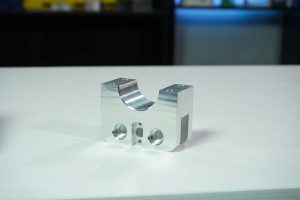Introduction to Food Processing Machinery and the Role of Plastics
Food processing machinery encompasses a diverse range of equipment designed for handling, preparing, cooking, storing, and packaging edible goods. These machines are integral in transforming raw ingredients into consumable products, ensuring food safety, extending shelf life, and enhancing food quality. Within this industry, plastics play a pivotal role due to their versatility, durability, and hygienic properties. They serve as components in conveyors, storage containers, molds, and various other parts that come into contact with food items, providing a non-reactive surface that is easy to clean and resistant to corrosion – qualities essential for maintaining high standards of food hygiene.
Advantages of Using Plastics in Food Processing Machinery
The incorporation of plastics into food processing machinery comes with significant benefits, primarily due to the durability and longevity of plastic components. Unlike some metals that can corrode or wood that may deteriorate, high-quality plastics can withstand harsh cleaning chemicals and resist wear from constant use, enhancing their lifespan in demanding environments. Furthermore, when comparing cost-effectiveness, plastics often emerge as a more economical choice over materials such as stainless steel, especially considering their low maintenance requirements. This cost efficiency extends throughout the lifecycle of the machinery, since plastic parts are generally less expensive to replace. Moreover, ease of cleaning and maintaining these components is another practical advantage; the non-porous surface of plastics allows for simple sanitation processes which are crucial for upholding food safety standards without compromising the integrity of the equipment. The combined benefit of these attributes—durability, cost-efficiency, and maintainability—can result in substantial efficiencies within food processing operations.
Types of Plastics Used in Food Processing Machinery
The choice of plastics in food processing machinery is crucial for ensuring safety, durability, and efficiency. High-Density Polyethylene (HDPE) is widely used for surfaces that come into direct contact with food due to its non-toxic nature. This plastic offers a smooth surface that prevents bacterial growth and is easy to clean. Another commonly employed plastic is Polypropylene (PP), which is favored for its resistance to chemical erosion, making it suitable for handling acidic or alkaline foods as well as cleaning agents. Lastly, Polytetrafluoroethylene (PTFE) plays a significant role, especially where non-stick properties are necessary. PTFE coatings on heat exchangers or molds ensure the easy release of foods without compromising their integrity. Each plastic type, selected for its specific properties, helps maintain food quality while simplifying maintenance procedures within processing equipment.
Safety Considerations in Food Processing Machinery
In food processing machinery, the utilization of plastic components necessitates strict adherence to safety and regulatory compliances such as those outlined by the FDA in the United States or similar standards set forth by the European Union. Manufacturers ensure that plastics employed do not leach harmful substances into food products, making certain they are food grade and capable of withstanding the rigors of a processing environment. Specific measures taken include selecting high-grade polymers resistant to cracking and deformation, thus preventing contamination risks from fragmented materials entering the food chain. An essential consideration is monitoring for wear and tear on plastic parts because over time, deterioration can lead to potential breaches in hygiene and inadvertently introduce contaminants into processed foods. Regular maintenance schedules and part replacements are therefore integral to maintaining overarching food safety and protecting public health.
Innovations in Antimicrobial Plastics
The development of antimicrobial plastics represents a significant breakthrough in food processing machinery. These innovative materials are embedded with antimicrobial agents that inhibit the growth of mold, fungi, and bacteria, directly contributing to improved hygiene standards and extended shelf life of food products. For example, incorporating silver or copper-based additives into plastic components of machinery allows for constant sanitation during operation. This proactive approach to reducing microbial contamination is critical in ensuring consumer safety and minimizing food spoilage, without depending on additional cleaning processes.
Advancements in Biodegradable Plastics
As environmental concerns take center stage, advancements in biodegradable plastics have emerged as an eco-friendly alternative for use in food processing machinery. Unlike conventional plastics, these materials are engineered to decompose after their service life through natural processes involving microorganisms. An example includes polylactic acid (PLA) plastics derived from renewable resources like corn starch, which reduce dependence on fossil fuels and offer a safer end-of-life disposal, ultimately lessening the ecological footprint of food manufacturing industries.
Enhancements in Heat-Resistant Plastic Technology
The enhancement in heat-resistant plastic technology has been invaluable for food processing machinery, where high temperatures are often required. Engineering plastics such as polyether ether ketone (PEEK) can withstand extreme temperature conditions while maintaining structural integrity and chemical resistance. Such heat-tolerant plastics enable equipment to operate effectively during thermal food processing steps, including pasteurization and sterilization, essentially broadening the scope of applications possible with plastic-based machinery components.
Environmental Impact of Plastics in Food Processing Machinery
The environmental impact of using plastics in food processing machinery is significantly influenced by recycling opportunities and waste management strategies. To create a sustainable manufacturing cycle, components made from high-density polyethylene (HDPE) or polypropylene (PP), known for their recyclability, are being integrated into machine designs. These materials allow worn-out parts to be reprocessed into new products, thereby reducing plastic waste. Additionally, the sector employs strategies to minimize plastic use, such as opting for thinner yet durable plastic films and implementing closed-loop systems where offcuts are immediately recycled on-site. Balancing practicality with sustainability comes down to choosing materials that meet both the industry’s hygiene standards and environmental concerns while actively pursuing innovative methods to reduce the overall plastic footprint without compromising functionality.
Success Stories in Implementation of Plastic Machinery
In the food processing industry, a notable example of efficiency improvement through the use of plastic machinery is seen with ABC FoodTech Ltd. The company transitioned to high-performance plastic conveyors and components within their production lines, leading to significant advancements in speed and hygiene. Plastics like acetal and nylon were chosen for their low friction coefficients and ease of cleaning, enhancing the overall product throughput and sanitation standards. Further cost savings were realized through the extended service life of these durable plastic parts, effectively reducing maintenance intervals and associated downtime costs. With this strategic implementation, ABC FoodTech Ltd not only elevated their operational efficacy but also established a benchmark in cost-efficiency for others in the sector.
Plastic Use in Food Processing Machinery
The suitability of plastics for food processing machinery derives from their unique properties, such as low weight, durability, and non-corrosive nature. Plastics are less likely to harbor bacteria compared to other materials, which is critical for hygiene standards in the food industry. Regulatory agencies have strict guidelines regarding what types of plastics can come into contact with food products; hence manufacturers strictly adhere to these food-grade qualifications to ensure consumer safety. While not all plastic equipment is fully recyclable due to its composite nature, advances in material technology are increasing the potential for recycling and repurposing used plastic machinery components. However, using plastics in food processing does carry risks, particularly if incorrect types of plastic are used that could leach harmful chemicals into food or degrade under high temperatures, which can pose health risks and compromise food quality.



